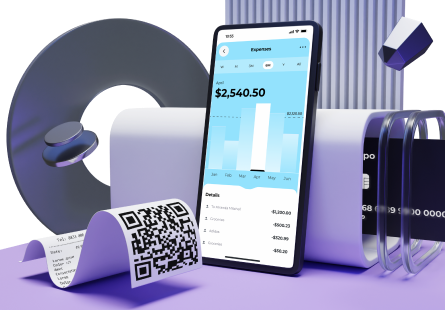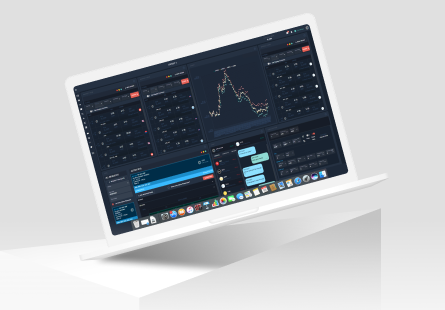Data is one of the most valuable business assets today. From capitalising on customer insights to facilitating strategic decision-making, organisations leverage data to drive success and innovation. However, there’s more to data than just that — data assets can create value for your stakeholders and provide monetisation opportunities.
To make the most of your data, you need to understand its worth. This is where data valuation comes into play. What is data valuation? Why is it so essential in our data-driven world? How can you measure the value of your data? Read on to find out the answers.
Data value defined
In the traditional context, data refers to information converted into letters, numbers, and symbols that can be read and processed by a computer, for instance, phone numbers, weather records, dates, URLs, etc. However, we live in the digital era where data has acquired a new dimension — the scroll depth of a website, search terms users type in the search box, type of content a specific audience bookmarks, and thousands of other examples are all data.
Moreover, this data doesn’t just exist — it represents a valuable asset for businesses.
A typical example of data value is a retail company analysing customer purchase history — product preferences, frequency of purchases, and spending habits to derive insights. For instance, such an analysis can show that specific customer segments tend to buy certain products during particular times of the year. With this information, the company can tailor marketing campaigns to target these segments more effectively, leading to higher sales and greater customer satisfaction.
So, what is the value of data? Simply put, it is the benefits that organisations can gain from their data assets, which include enhanced investment opportunities, new revenue streams, greater operational efficiency, improved decision-making and customer experiences.
How can your business benefit from data valuation?
Let’s face it: at present, intangible assets, including data, constitute 90% of the total business value. You need to understand the value of your data to maximise its potential, so identifying what your data’s monetarily worth is a logical step. But before we explore major data valuation methods, let’s look at the key benefits of data asset valuation.
Understanding what you have
As obvious as it sounds, data valuation allows you to find out the monetary value of your data. From creating value for your stakeholders to negotiating mergers or partnerships, data valuation goes a long way towards assessing the worth of a company’s assets and can influence the overall valuation of the business.
Enhancing investment opportunities
When companies accurately assess the value of their data, they can articulate a more robust and persuasive argument to potential investors or lenders. This can result in enhanced funding opportunities, as investors increasingly acknowledge the significance of data in fostering business expansion and creativity.
Ensuring successful M&As, exit and IPO strategy
Data valuation is crucial in M&A activities. Companies possessing high-value data assets are often more appealing as acquisition targets and can negotiate better sale prices. Similarly, prospective acquirers can utilise data valuation to gain deeper insights into the genuine value of a potential acquisition, facilitating more informed decision-making.
Businesses contemplating future sales, IPOs, or other exit strategies can greatly benefit from a clear understanding of the valuation of their data assets. This comprehensive valuation not only enhances the overall business valuation but also attracts more favourable terms and higher prices, ensuring a successful exit strategy.
Tapping into the next-level decision making
Understanding the value of data allows businesses to make informed decisions about collecting, storing, analysing, and utilising their data assets effectively. For example, data valuation analysis helps determine which data drives the most critical business decisions, and you might want to invest in making it more reliable.
Discovering new revenue streams
Data valuation can help you identify opportunities to monetise your data assets. By understanding the value of your data, you can explore various options, such as selling data to third parties, licensing data for specific uses, or leveraging data for targeted advertising.
Leveraging improved risk management
Assessing the value of data helps organisations optimise data protection efforts and invest in appropriate security measures. For example, it allows companies to determine high-value data assets that require strengthened protection against security breaches, data loss, or unauthorised access.
Strengthening your compliance efforts
Many sectors are subject to regulations governing data collection, storage, and use. Understanding your data value can help you maximise your compliance efforts, for instance, by providing insights on prioritising your data protection measures.
Becoming a data-oriented company
Data valuation can be your first step towards developing a data-driven culture across your organisation. Data valuation assigns the data the same importance as a company’s tangible assets, such as its facilities or hardware, making its value realised across all the departments.
How to measure the value of your data
There are several standard methodologies that can help organisations quantify their data assets and understand their actual value.
The cost-value approach
This approach focuses on measuring the cost to generate and store the data, the cost to replace it, and the economic impact in case it’s lost. Multiple methods match this valuation principle, for example, the relief-from-royalty method, which determines how much an organisation would pay to acquire the data from a third party.
While the cost-value methods are more resource-efficient than other widespread valuation approaches, they may also be somewhat subjective. As a result, such a valuation can fail to provide an accurate economic value of the asset and lack a focus on the data’s potential value.
The market-based approach
The market-based model calculates the current data value relying on what others pay for this data or comparable business assets in the market. This valuation methodology doesn’t require much effort to estimate your data; however, it doesn’t involve all of it. The thing is that there’s always some amount of data that isn’t tradeable, usually for two reasons — either this data doesn’t make much sense or an organisation doesn’t trade it because of the competitive advantage it brings. Another limitation of this approach is that some data is one-of-a-kind, making it challenging to identify comparable equivalents in the market.
The economic value approach
The economic value approach entails two major methods: income or utility valuation and use case valuation.
Income or utility valuation focuses on the economic benefits a company’s data provides, determining the value data adds to the business or specific business functions. Similar to other valuation methodologies, the drawback of utility valuation is its subjectivity.
Use case valuation consists in identifying data values through business use cases. While this methodology connects data value with tangible business outcomes, it can also be rather subjective when based on hypothetical scenarios. A separate method within the use case valuation approach, the decision-based valuation method, is very similar. However, it also models the frequency of data collection and its accuracy.
The dimensional approach
The dimensional model estimates the value of data through dimensions such as data quality, delivery frequency, ROI it produces, and more. There are various data asset valuation methods based on dimensions, with diverse views on which dimension is the most important. The key benefit the dimensional approach offers is that it’s data-specific.
How to maximise data value
Companies can derive value from data in multiple ways, from making the most of advanced analytics and more data-driven strategies to leveraging monetisation opportunities. Let’s look at the primary ways data can help organisations grow.
Increase efficiency
Access to trusted data ensures real-time visibility into business activities within an organisation or to partners or vendors in your supply chain. One vivid example is collecting data from IoT-powered sensors to forecast potential equipment failures. By performing timely repairs or replacements, manufacturers can effectively prevent downtime as well as reduce maintenance costs.
Unlock innovation
Customer feedback, market trends, and internal processes create data that companies can use to identify areas for improvement and innovation. For example, by analysing customer feedback, organisations can develop new products or services tailored to customer needs or optimise existing processes for greater efficiency by looking into the data on internal processes.
Enhance customer experience
Data enables businesses to gain a more profound understanding of their customers and deliver personalised experiences. For instance, by analysing customer data such as purchase history and browsing behaviour, companies can tailor their offerings to meet individual preferences, enhancing customer satisfaction and increasing revenue.
Optimise marketing strategies
Data-driven analytics allows organisations to target their marketing efforts more effectively. Companies can segment their audience and deliver more personalised marketing messages by analysing customer demographics, interests, and purchasing behaviour. This increases the likelihood of conversion and maximises ROI.
How companies can monetise their data
Besides leveraging data to improve business outcomes, companies can use their data assets to generate revenue. Here are some ways in which organisations can create direct value out of the data they own:
- Data-as-a-Service (DaaS). Companies can offer Data-as-a-Service (DaaS) solutions, charging customers for access to curated datasets or APIs that deliver real-time data streams, for example, financial data feeds or weather data.
- Data licensing. Organisations can license their data to third parties for a fee. This may involve access to proprietary datasets, market research reports, or industry insights.
- Partnerships. Companies can collaborate with other organisations to monetise their data collectively, for example, by establishing partnerships to aggregate data from multiple sources to develop more comprehensive datasets and insights.
- Data monetisation platforms. Data monetisation platforms allow companies to sell their data to a broader audience.
Final thoughts
In today’s data-driven world, understanding the value of data assets is essential for businesses seeking to thrive and innovate. Data valuation not only provides insights into the monetary worth of data but also unlocks numerous opportunities for enhancing business operations, driving growth, and maximising revenue.
By recognising the significance of data assets and implementing effective data valuation methodologies, businesses can gain a competitive edge, attract investors, and ensure successful mergers, acquisitions, or exit strategies. Moreover, leveraging data to its fullest potential enables organisations to optimise decision-making, enhance customer experiences, and unlock new revenue streams.
Ultimately, by prioritising data valuation and maximising data value, companies can position themselves for sustained success in an increasingly data-centric business landscape, driving innovation, growth, and profitability.







